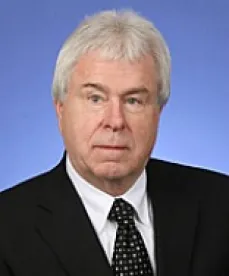The term “reservation shopping” has been coined by various anticasino groups, some local governments, and even some gaming tribes to disparage efforts of non-gaming tribes to acquire lands in trust for gaming. Some of the tribes seeking new land are landless, while others have tribal land that is unsuited for gaming development for various reasons. The term is intended to be pejorative.
Section 20 of the Indian Gaming Regulatory Act generally prohibits Indian gaming from being conducted on lands taken into trust after that law was enacted in October 1988. However, it also authorizes gaming on newly acquired trust lands if tribes can satisfy one of three specific exceptions or otherwise qualify for off-reservation gaming through a difficult two-step process.
The exceptions provide a right for any tribe to conduct gaming on land taken into trust as part of one of the following: (1) settlement of a land claim, (2) initial reservation of a tribe newly recognized by the Interior Department’s administrative federal acknowledgement process, or (3) restoration of tribal lands to a tribe that once had recognition, lost its recognition for any reason, and subsequently had its recognition restored. Invocation of these exceptions often has been contested on specific factual disputes, with mixed results depending on the facts of the case.
The off-reservation provisions of Section 20 can be pursued by tribes seeking gaming approval for land that is not covered by the three exceptions, and those provisions establish a process through which off-reservation lands can be approved. The process requires the Interior Secretary to determine that the land acquisition is (a) in the best interest of the tribe and (b) not detrimental to the surrounding community, followed by concurrence of the Governor. Gubernatorial concurrence – which essentially amounts to a veto power – is purely discretionary and not subject to any standard of reasonableness or equity.
The term “reservation shopping” usually is applied to efforts of tribes seeking off-reservation approvals. Until recently, the off-reservation process was rarely invoked. Indeed, prior to the current Administration’s taking office, only a handful of such applications were successful. That is changing with recent positive Secretarial determinations, including those for two California tribes. One of them, the North Fork Band of Pomo Indians, has received final approval by the Governor and state legislature, but the state approvals are now the subject of a referendum petition proposing to overturn the state approval through a statewide referendum.
The off-reservation process remains controversial, but recent developments may add fuel to the opposing fires. Call it “Reservation Shopping 2013 Style.”
Two tribes recently elevated the stakes by proposing to cross state lines for tribal development, and – in the process – have introduced a whole new chapter to the “reservation shopping” story.
The Delaware Tribe of Indians of Oklahoma virtually forfeited its right to conduct any gaming within its historic territory in the northeastern part of the state due to a bruising legal battle in federal courts with the Cherokee Nation of Oklahoma that resulted in the Delawares losing their federal recognition. The Tribe was subsequently allowed to reorganize and gain new federal recognition as part of an agreement giving Cherokee a veto over any trust land acquisition and any gaming development within a large portion of the state. With no opportunity to develop gaming and realize the economic self-sufficiency already achieved by its tribal neighbors, Delaware has announced that it intends to relocate its tribal offices to historic Delaware land in Kansas. It remains to be seen whether the Tribe will be able to secure the necessary approvals at the federal and state levels.
The second tribe looking for cross-border casino development is the Catawba Indian Nation of South Carolina. Unable to develop a casino due to prohibitory state laws, Catawba officials recently commenced discussions with North Carolina officials to move their proposed gaming site from York County, South Carolina, across the state border to Cleveland County, North Carolina, adjacent to Interstate 85 and convenient to gamblers in both states. If North Carolina Governor Pat McCrory is willing to negotiate a gaming compact with the Catawba and the Interior Secretary renders the necessary determination, the Catawba will have broken new ground in Indian gaming. The existing plans reportedly call for a casino and resort with many amenities and significant financial concessions to North Carolina that could be as high as $100 million annually.
These two actions are in the future and will depend on groundbreaking federal approvals. However, the two tribes are serious and appear to have financial backing that will allow them to press their cause. Success by either will likely generate consideration of cross-border proposals from tribes in other states that similarly have encountered legal and political barriers to gaming development. In any event, a new chapter for Indian gaming may have begun.




 />i
/>i

